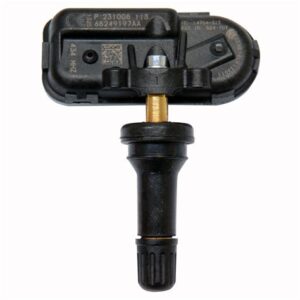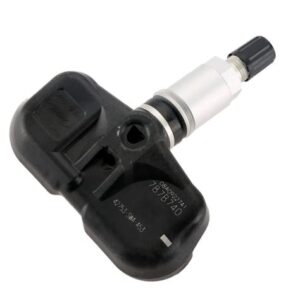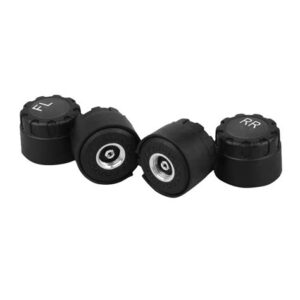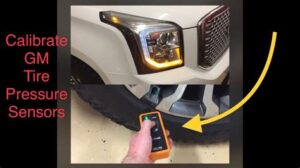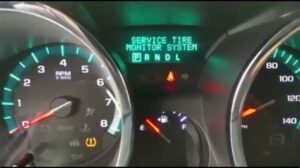Learn about tire pressure sensors in Volkswagen Jetta, their importance, common issues, and troubleshooting tips to maintain optimal tire pressure.Maintaining optimal tire pressure is crucial for the performance and safety of your Volkswagen Jetta. One essential component that aids in this maintenance is the tire pressure sensor, which ensures your tires are properly inflated for both comfort and efficiency on the road. In this blog post, we’ll delve into the inner workings of the tire pressure sensor, discuss the importance of keeping your tires at the recommended pressure, and explore common issues you might encounter with the sensor itself. Additionally, we’ll provide practical tips for troubleshooting any sensor-related problems you may face. Whether you’re a seasoned Jetta owner or new to the experience, understanding your vehicle’s tire pressure system can enhance your driving experience while ensuring your safety on the road.
Understanding the tire pressure sensor
The tire pressure sensor is a crucial component of modern vehicles, especially in cars like the Volkswagen Jetta. This sensor monitors the air pressure in each tire, ensuring optimal performance and safety. When tire pressure drops below a specified level, the sensor triggers warning lights on the dashboard, alerting the driver to check the tire pressure.
There are two primary types of tire pressure monitoring systems (TPMS): Direct TPMS and Indirect TPMS. In Volkswagen vehicles, a direct system is typically used, which employs sensors mounted on each tire’s valve stem to measure the tire’s air pressure directly.
How the Tire Pressure Sensor Works
The tire pressure sensor operates by sending real-time pressure data to the vehicle’s onboard computer. When the pressure is lower than the recommended threshold, it initiates an alert. Here’s how it works:
- Pressure Measurement: The sensors measure the air pressure in real-time.
- Data Transmission: This information is wirelessly sent to the vehicle’s TPMS.
- Warning Activation: If the pressure is too low, a warning light illuminates on the dashboard.
Importance of Tire Pressure Maintenance
Maintaining proper tire pressure is essential for several reasons:
- Safety: Properly inflated tires reduce the risk of blowouts and improve vehicle handling.
- Fuel Efficiency: Correct tire pressure contributes to better fuel economy.
- Tire Longevity: Maintaining the right tire pressure can extend the life of tires by preventing uneven wear.
In conclusion, understanding the tire pressure sensor in your Volkswagen Jetta is vital for vehicle safety and performance. Regularly monitoring and maintaining tire pressure will help ensure a smooth and reliable driving experience.
Importance of maintaining proper tire pressure
Maintaining proper tire pressure is crucial for several reasons, impacting not only the safety of your vehicle but also the overall driving experience. Here are some key points to consider:
- Enhanced Safety: Proper tire pressure ensures better vehicle handling, reduces the risk of blowouts, and improves braking response. Under-inflated tires can lead to loss of control, especially during adverse weather conditions.
- Fuel Efficiency: Tires that are inflated to the correct pressure can improve your vehicle’s fuel economy. Under-inflated tires create more rolling resistance, which results in increased fuel consumption.
- Longer Tire Life: Maintaining the right tire pressure prevents uneven tire wear. This extends the lifespan of your tires, saving you money in the long run on replacements.
- Environmental Impact: Better fuel efficiency from properly inflated tires reduces your carbon footprint. This minor change can contribute to overall environmental conservation.
The Volkswagen Jetta comes equipped with a tire pressure monitoring system (TPMS) that alerts you when your tire pressure is low. However, it’s essential to check your tire pressure manually as well, as the sensor may not always be accurate. Regularly monitoring and adjusting your tire pressure not only enhances your safety but also supports the longevity and performance of your vehicle.
To maintain the right tire pressure, consider the following:
- Check tire pressure at least once a month or before long trips.
- Refer to the vehicle’s owner manual for the recommended tire pressure settings.
- Use a reliable tire pressure gauge for accurate measurements.
- Inflate tires when they are cold, as pressure can increase with heat from driving.
“Proper tire maintenance is just as important as any other aspect of car care. Remember, your tires are the only contact your vehicle has wi
How the sensor works in Volkswagen Jetta
The tire pressure sensor in the Volkswagen Jetta is a critical component of the vehicle’s tire monitoring system. It plays an essential role in ensuring that the tires maintain the proper air pressure, which is crucial for both safety and performance.
Here’s a breakdown of how the tire pressure sensor operates in the Volkswagen Jetta:
1. Tire Pressure Monitoring System (TPMS)
The Volkswagen Jetta utilizes a Tire Pressure Monitoring System (TPMS), which includes both direct and indirect sensors. The direct sensors are mounted inside the tire, attached to the valve stem, while the indirect sensors rely on the car’s ABS (Anti-lock Braking System) to monitor tire performance.
2. Direct Tire Pressure Sensors
- Direct sensors measure the actual tire pressure and are equipped with a small battery.
- These sensors transmit data wirelessly to the vehicle’s onboard computer.
- When the tire pressure falls below the recommended level, the sensor triggers a warning light on the dashboard.
3. Indirect Tire Pressure Sensors
- Indirect sensors do not measure pressure directly. Instead, they monitor the rotation speed of each tire.
- When a tire is under-inflated, it has a different circumference and rotates faster than properly inflated tires.
- This discrepancy in rotation speed alerts the system to potential pressure issues.
4. Warning System
Both types of sensors work together to keep the driver informed about the tire condition:
Proper tire pressure is crucial for ensuring safety, maximizing fuel efficiency, and extending tire life. – Volkswagen Safety Manual
5. Maintenance and Resetting
After adjusting the tire pressure, the TPMS may need to be reset. This is done through the vehicle’s onboard diagnostic system, which allows the sensors to recalibrate and accurately reflect the current tire pressures.
The Volkswagen Jetta’s tire pressure sensors are designed to provide real-time monitoring and alert the driver to any issues. Regular maintenance of your tires and understanding how this system works can significantly enhance your driving experience.
Common issues with tire pressure sensors
Tire pressure sensors play a crucial role in monitoring the tire pressure in your vehicle, ensuring safety and optimal performance. However, like any electronic component, they can encounter various issues. Here are some common problems that you might face with tire pressure sensors in your Volkswagen Jetta:
- Incorrect readings: One of the most frequent issues is receiving false or inaccurate tire pressure readings. This could be due to a malfunctioning sensor or interference from external sources.
- Sensor failure: Over time, tire pressure sensors can fail due to wear and tear or battery depletion. When this happens, you may see the warning light on your dashboard illuminate, indicating that the sensor needs replacement.
- Corrosion: Exposure to moisture and road salt can lead to corrosion on the sensor. This could interfere with its ability to accurately measure the pressure, resulting in the need for replacement.
- Faulty installation: If a tire pressure sensor is not installed correctly, it might not function as expected. This could happen during a tire change or system reset.
- Communication errors: Sometimes the sensor may fail to communicate effectively with the car’s onboard computer. This could result from software glitches or issues with the vehicle’s wiring.
If you experience any of these issues, it’s advisable to consult a professional mechanic. Proper maintenance and timely repairs can help ensure that your Volkswagen Jetta continues to operate safely and efficiently.
Tips for troubleshooting sensor problems
When dealing with tire pressure sensor issues in your Volkswagen Jetta, it’s important to approach the problem methodically. Here are some practical tips that can help you troubleshoot sensor problems effectively:
- Check Tire Pressure: Before assuming there’s a problem with your sensor, always verify the tire pressure using a manual gauge. Ensure that the pressure matches the recommended values indicated on the door jamb of your vehicle.
- Inspect for Damage: Visually inspect the tires and the sensors themselves for any signs of physical damage. Look for cracks, cuts, or corrosion which may affect the sensor’s functionality.
- Reset the System: If your Jetta is equipped with a reset button for the tire pressure monitoring system (TPMS), use it after ensuring the tire pressures are correct. This can sometimes resolve alert issues.
- Battery Life: Check if the TPMS battery is still functional. Tire pressure sensors have batteries that can deplete over time, leading to false alerts.
- Scan for Errors: Utilize a diagnostic tool to scan for any error codes related to the tire pressure sensor. This can provide insight into what might be wrong with the system.
- Sensor Relearning: After replacing any sensors, it’s often necessary to perform a sensor relearning procedure. Consult your vehicle’s manual or a professional mechanic for assistance with this process.
- Consult Professional Help: If all else fails, it’s advisable to take your Volkswagen Jetta to a qualified technician. They have the tools and expertise to diagnose and fix issues that may not be apparent to the average car owner.
By following these troubleshooting tips, you can identify and rectify issues related to tire pressure sensors in your Volkswagen Jetta, ensuring the safety and performance of your vehicle is maintained.
Frequently Asked Questions
What is a tire pressure sensor in a Volkswagen Jetta?
A tire pressure sensor in a Volkswagen Jetta is a device that monitors the pressure of the tires and alerts the driver if the pressure falls below the recommended levels.
How do I know if my tire pressure sensor is malfunctioning?
Symptoms of a malfunctioning tire pressure sensor include a warning light on the dashboard, inconsistent tire pressure readings, or the inability to reset the warning light after addressing tire pressure issues.
What are the benefits of having a functioning tire pressure sensor?
A functioning tire pressure sensor helps improve safety by alerting the driver to low tire pressure, enhances fuel efficiency by ensuring tires are properly inflated, and prolongs the lifespan of tires.
How can I reset the tire pressure sensor in my Jetta?
To reset the tire pressure sensor in a Volkswagen Jetta, you typically need to inflate the tires to the correct pressure, then turn on the ignition without starting the engine and press the reset button on the dashboard until the sensor resets.
What should I do if the tire pressure warning light comes on?
If the tire pressure warning light comes on, check the tire pressures using a gauge, inflate any low tires to the recommended pressure, and if the light remains on after correcting the pressure, consult a mechanic.
Can tire pressure sensors be replaced individually?
Yes, tire pressure sensors can generally be replaced individually if only one sensor is malfunctioning, but it is often recommended to replace them in pairs or all four for consistent performance.
What is the typical lifespan of a tire pressure sensor in a Volkswagen Jetta?
The typical lifespan of a tire pressure sensor is around 5 to 10 years, but factors such as exposure to harsh conditions and road debris can affect their longevity.
